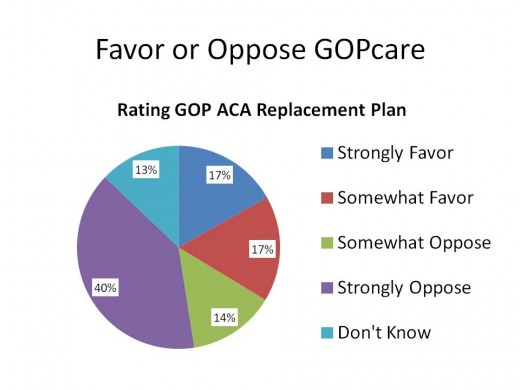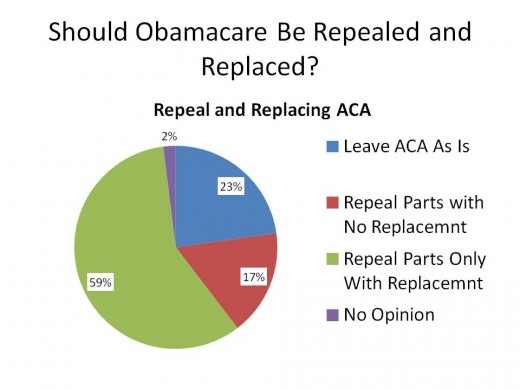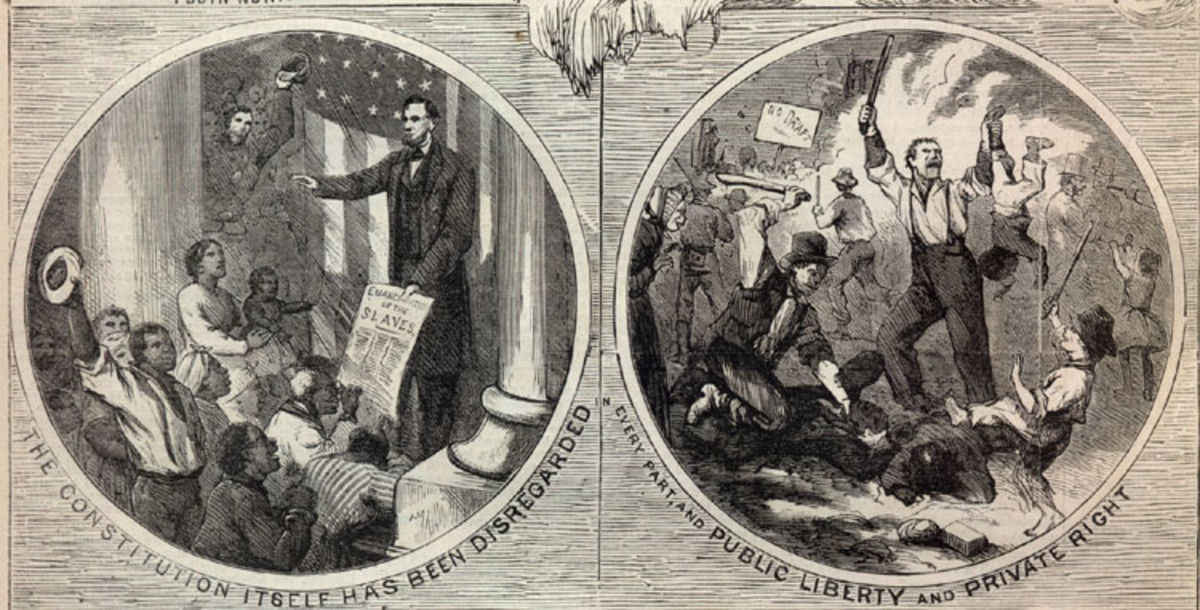The CBO Cost Estimate of the American Health Care Act Explained
The Congressional Budget Office.
I can speak to this subject with some authority. My job for most of my career with the Air Force and Office of the Secretary of Defense was as a professional Cost and Economics Analyst. Some of us stayed with our parent organizations, others moved on to the CBO to do the same type of work. I thought about apply with the CBO1 as well, but was having too much fun where I was with little chance of being unfairly bashed by Congress when they don't like the results.
And the GOP congressmen do not like the results of the independent, bipartisan CBO regarding their cherished repeal of Obamacare. Unfortunately for them, I know how the CBO analysts did their job, the methodologies they used, and most importantly, the care and pride they take in doing an honest job trying to get the best possible result given the constraints they are working under. What I am saying is the CBO analysis of the AHCA is as good as anyone can do at the moment, and orders of magnitude better than some politician and his staff's politically-based "hope" of what will happen.
What the CBO's charter is, is to estimate the impact of the GOP proposed law on the federal budget. For that reason, they only look at revenues and expenses and the things that drive them. They make no comment on the human aspect of the law which will huge emotional and monetary consequences well beyond the budget. Further, Senator Bernie Sanders (I-VT) pointed out peoples lives are also at stake.
What follows is not so much an analysis of what the CBO produced, but more like a summary and explanation of their most important findings. The headline, of course, is 14 million people will lose their insurance if ACHA is approved. That is probably close to the truth, but the devil is in the details, and that number is just the tip of the iceberg; some good for the GOP and a lot bad.
1. This was actually a joint effort between the CBO and the Joint Committee on Taxation (JCT). For brevity, I will simply use the acronym CBO
Is Repealing Obamacare Popular?
Click thumbnail to view full-size

Millions to Lose Insurance Coverage and Billions in Budget Reductions
The top line of the CBO's cost analysis is that, between 2017 and 2026 1) 14 growing to 24 million people are likely to lose health insurance coverage, but the federal budget deficit will be reduced $337 billion as a result. Bad news if you use Obamacare and good news if you are a budget hawk.
Below those rather startling numbers are equally eye-opening details. It is those details which we will explore here.
Where Do The Savings From ACHA Come From?
This is relatively easy to answer ... by not paying the subsidies which help defray premium costs for those between 100% and 400% of the federal poverty level and reducing payments for Medicaid. If you earn less than this, or nothing at all, then you were expected to sign up for Medicaid.1 Also eliminated are the cost sharing payments to insurers that reduce deductibles, co-payments, and coinsurance for people earning between 100% and 250% of the federal poverty level.
The CBO estimates that a total of $1.219 trillion will be "saved" from the following sources in Direct Spending (spending reductions are positive):
- Elimination of ACA Subsidies and sharing beginning in 2020 and Medicare - $1.226 trillion
- Increase in non-coverage provisions - ($.007 trillion)
But the changes the GOP wants also include "costs"
1 GOP complains the CBO missed their total coverage mark because 19 states refused to expand Medicaid to cover those between the old Medicaid threshold and the bottom threshold of ACA.
And How Much Will AHCA Cost?
Well, fortunately for the GOP, not as much as the savings are estimated to be. In fact, they total around $883 billion in lost tax revenues and other net increases to the budget. These increases (negative numbers) break down like this:
- Decrease in Coverage related Revenue - ($291 billion)
- Decreases in non-Coverage related Revenue - ($592 billion)
This results in a net estimated savings (reduction to deficit) from AHCA is:
$3371 billion the government doesn't have to spend helping people have insurance.
To summaries the top level impact of the GOP's replacement for Obamacare is that by 2026:
- an estimated 24 million Americans will lose (or give up) their insurance, including Medicaid
- the deficit is projected to be reduced by $337 billion per year.
1. May not add due to rounding
The Devil is In the Details
The next discussion will take a summary look at the various provisions in AHCA and what their impact will be.
Stability of the Health Insurance Market
The CBO's assessment that under the original AHCA1 or the ACA the insurance market will remain relatively stable and will not enter a so-called "death spiral".
Effects on Premiums
The CBO believes the legislation would tend to increase average premiums in the nongroup market prior to 2020 by 15 to 20%, relative to projections under current law. This increase is mainly driven by the elimination of the individual mandate.
From 2020 on, they estimate average premiums will be lower by 10%, relative projection under current law. This results from:
- grants to states from the Patient and State Stability Fund
- the elimination of the requirement for insurers to offer plans covering certain percentages of the cost of covered benefits
- and a younger mix of enrollees.
Major Changes to Medicaid (where most AHCA "saving" will come from)
CBO estimates that enrollment in Medicaid will decline by 14 million Americans by 2026; this is about a 17% reduction in enrollees relative to the number enrolled under current law. Some of that decline would be among people who are currently eligible for Medicaid benefits, and the rest would be from people who CBO projects would have been eligible as a result of some States expanding their Medicaid in the future, but won't be under AHCA.
The decline would result from:
-
Termination of enhanced federal matching funds for new enrollees allowed for in current ACA law
-
Putting a "per capita" cap on federal government payments to states making Medicare more expensive for States.
-
The CBO expects a 25% reduction in Medicaid spending below current estimates by 2026.
-
Elimination of penalties associated with the individual mandate apply to some Medicaid-eligible adults and children. CBO estimates that, without those penalties, fewer people would enroll in Medicaid, including some who are not subject to the penalties but might think they are. The estimated lower enrollment would result in less spending for the program.
-
Termination of Enhanced Federal Matching Funds for New Enrollees From Expanding Eligibility for Medicaid. CBO projects that under current law, additional states will expand their Medicaid programs and that, by 2026, roughly 80 percent of newly eligible people will reside in states that have done so. Under the legislation, largely because states would pay for a greater share of enrollees’ costs, CBO expects that no additional states would expand eligibility, thereby reducing both enrollment in and spending for Medicaid. According to CBO’s estimates, by 2026, on an average annual basis, 5 million fewer people would be enrolled in Medicaid than would have been enrolled under current law. CBO also anticipates some states that have already expanded their Medicaid programs would no longer offer that coverage, reducing the share of the newly eligible population residing in a state with expanded eligibility to about 30 percent in 2026.
1. The original AHCA was amended by the House GOP leadership in order to gain passage from the Freedom Caucus and moderate members. Leadership refused to allow the CBO to re-score the amendment for fear of losing votes (it won by two votes which President Trump "convinced" to switch their vote.
© 2017 Scott Belford










